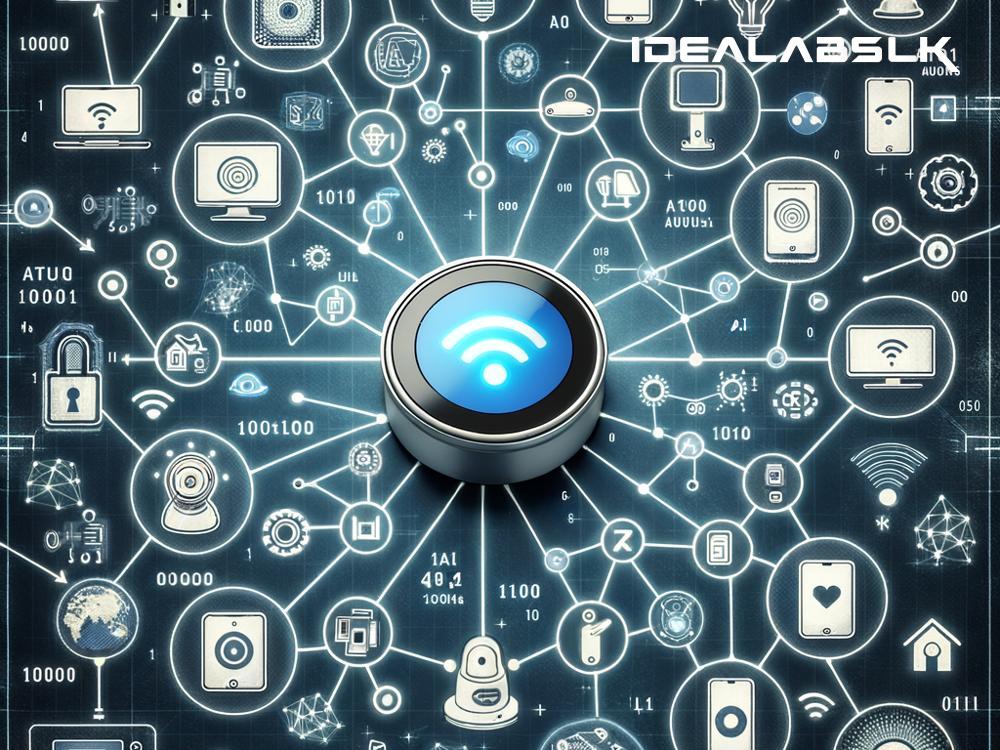How AI Revolutionizes Home Automation in Houses Full of Gadgets
In the bustling era of technology, our homes have transformed into short-range sci-fi settings, crammed with all sorts of gadgets and devices that promise to make our lives easier and more entertaining. From smart refrigerators that know when you're out of milk to thermostats that adjust the temperature based on your habits, the future of living has indeed arrived. But with this avalanche of technology, a significant challenge has emerged: How do we get all these devices to work together seamlessly? That's where the magic of Artificial Intelligence (AI) steps in, especially in weaving together the complex tapestry of multi-device ecosystems in our homes. Let's break down how AI is optimizing home automation, making our houses smarter and our lives simpler.
Understanding The Challenge
Imagine walking into your home after a long day. Your hands are full, and all you want is a welcome-back ambiance: lights dimmed to a soothing level, your favorite playlist floating in the air, and the temperature just right. The challenge here isn't about having devices that can do each of these tasks; it's about having these devices communicate with each other to create that perfect setting as soon as you step in. Without a unifying brain, managing each device separately can feel like trying to conduct an orchestra where every musician plays a different tune.
AI: The Maestro of Home Automation
Enter AI, the maestro capable of orchestrating your home's diverse gadget ecosystem. AI in home automation is about smart decision-making. By learning from your habits and preferences, AI anticipates your needs, making your home more responsive and intuitive. Here's how it's changing the game:
1. Seamless Integration
One of the biggest perks of AI in home automation is its ability to integrate diverse devices, regardless of their make or model. AI platforms can communicate with your smart TV, thermostat, lights, and more, creating a unified system. This integration means you can control all aspects of your home from a single app or through voice commands, streamlining your daily routines.
2. Anticipative Living
Imagine a home that knows you're about 15 minutes away and starts preparing itself: adjusting the temperature, gradually turning on lights, and maybe even preheating the oven for dinner. Through location tracking on your smartphone and learning your usual timings, AI can predict when you'll be home and tailor the environment accordingly. This level of anticipative living is not just about convenience; it's about creating a home that actively works to meet your needs.
3. Energy Efficiency
Optimizing energy use is another area where AI shines in home automation. By learning your patterns—such as when you're usually not home or which rooms you spend most time in—AI can adjust heating, cooling, and lighting to minimize waste. Not only does this help in reducing your carbon footprint, but it also leads to notable savings on utility bills.
4. Enhanced Security
AI has also revolutionized home security. Beyond traditional alarms, AI-powered systems can differentiate between regular visitors and strangers, detect unusual activity patterns, and even recognize if a door is left unintentionally unlocked. By integrating cameras, motion sensors, and smart locks, AI ensures your home is not just smart but secure.
5. Personalized Experiences
Finally, AI personalizes your home automation experience. Whether it's setting the perfect mood with lighting and music based on the time of day, or recommending a meal plan based on your health tracker's report, AI systems can curate experiences tailored just for you.
The Road Ahead
As we stand on the cusp of a new era in home automation, the potential of AI is only beginning to unfold. With advancements in machine learning and data analysis, our homes will become even more intuitive, capable of catering to our needs in ways we've yet to imagine. The future promises a home that's not just a living space but a thoughtful companion, dedicated to making our lives better in every possible way.
In conclusion, AI in home automation is not just about optimizing the operation of multiple devices in our homes; it's about redefining our living spaces completely. It's about creating environments that are truly responsive, efficient, and personalized. As AI continues to evolve, the dream of a fully automated, intelligent home is quickly becoming an attainable reality, making life not just easier, but infinitely more delightful.

